Do you need a dehumidifier during winter? The benefits, drawbacks and whether it's right for your home
HVAC experts explain the pros and cons of using a dehumidifier in winter
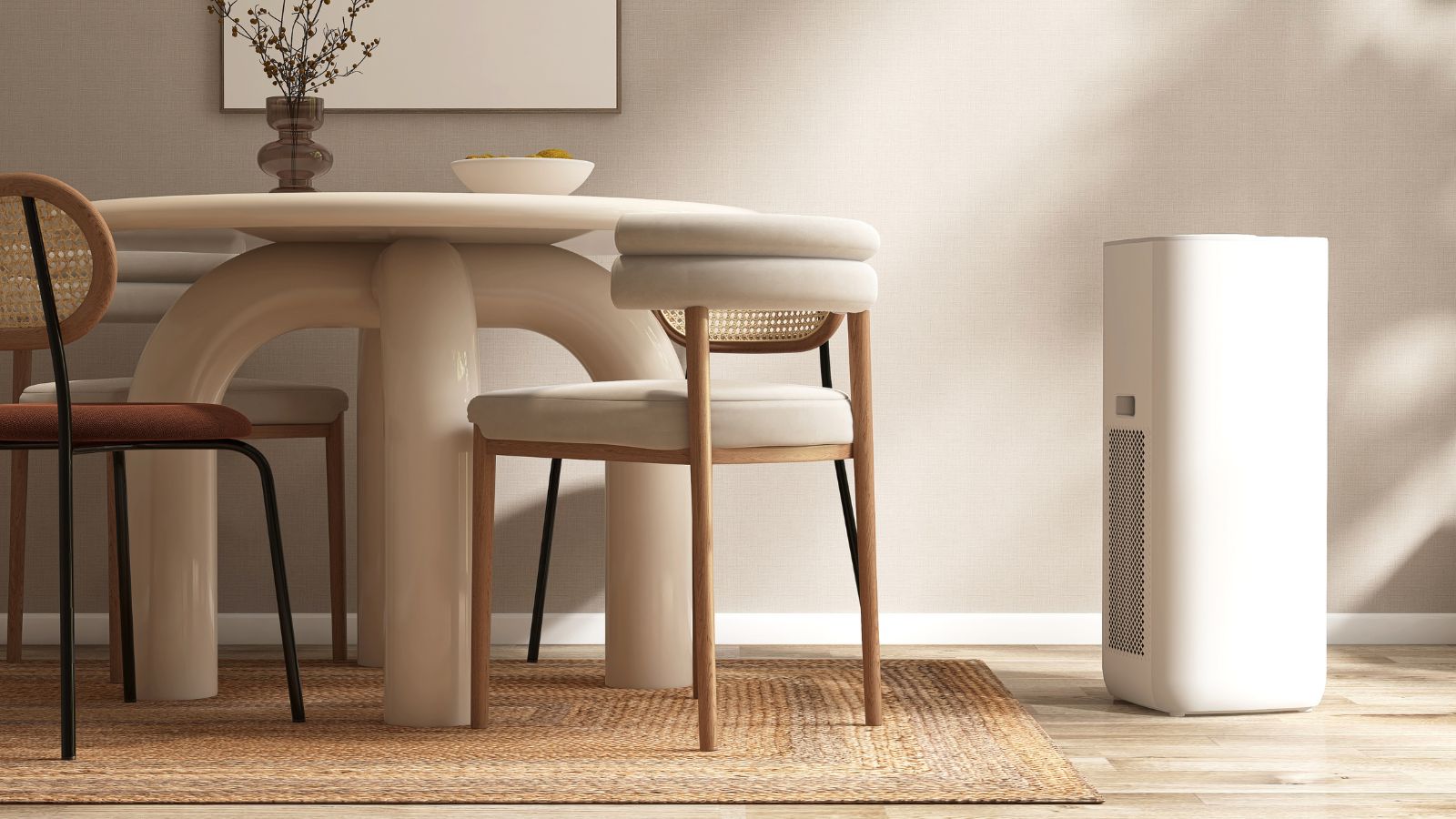

Emilia Hitching
It's easy to associate using a dehumidifier with particularly humid summer weather, but you might be wondering if you need a dehumidifier during winter?
Despite the colder temperatures, you could still be getting a lot out of your dehumidifier. A quick blast can remove excess moisture in the air, eliminate condensation and keep your home smelling fresh. But, it's important not to overdo it, as doing so can compromise the structural integrity of your home, HVAC pros say.
I spoke to experts about the pros and cons, and their tips for getting the most out of your best dehumidifier, even in winter.
Do you need a dehumidifier during winter?
What is a dehumidifier and how does it work?
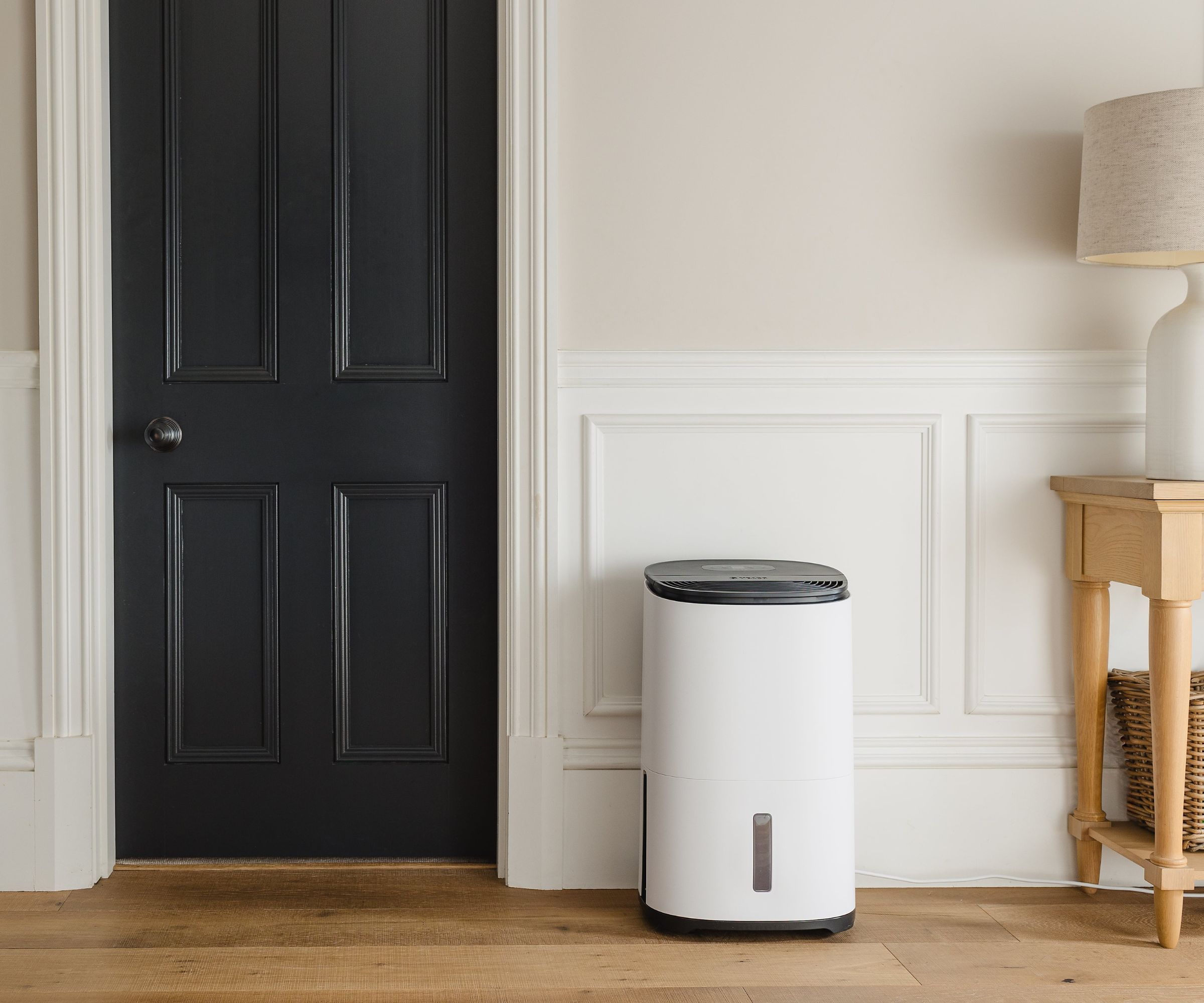
What does a dehumidifier do? A dehumidifier is a home appliance that works to remove excess moisture from the air. Inside a dehumidifier, you'll find fans, filters, condensers and cooling coils, as well as a water reservoir. Damp air is filtered into the machine, where it is cooled to remove moisture, then reheated and released through the fan back into the room.
To get the most out of your machine, you need to find the best place to put it. When I asked air care expert Holly Male, brand manager for Duux, to identify the best place to put a dehumidifier, she said it's not that simple, since the prime location 'depends on several factors, including the layout of the room, the source of humidity, and the type of dehumidifier.'
Ask yourself why you want to use a dehumidifier in the first place: whether it's to clear the air in a particular room, reduce humidity across the home, or for a more surprising use for a dehumidifier. Male suggests identifying the specific source of moisture in a room, which might be the shower in a bathroom, or the stove top in a kitchen. 'Placing the dehumidifier close to this source should increase its effectiveness,' she says. 'For general humidity control, place the dehumidifier in a central location to ensure even distribution throughout the room.'
See the incredible difference a dehumidifier made for our writer's terrible window condensation.
Male also recommends adapting where you put your dehumidifier to your space. 'Keep the dehumidifier away from direct heat sources, such as radiators or heating vents, as this can affect its efficiency,' she says. 'And, avoid placing the dehumidifier in a cramped corner or closed-off area: it needs good airflow on all sides to work.'
What are the benefits of using a dehumidifier in the winter?
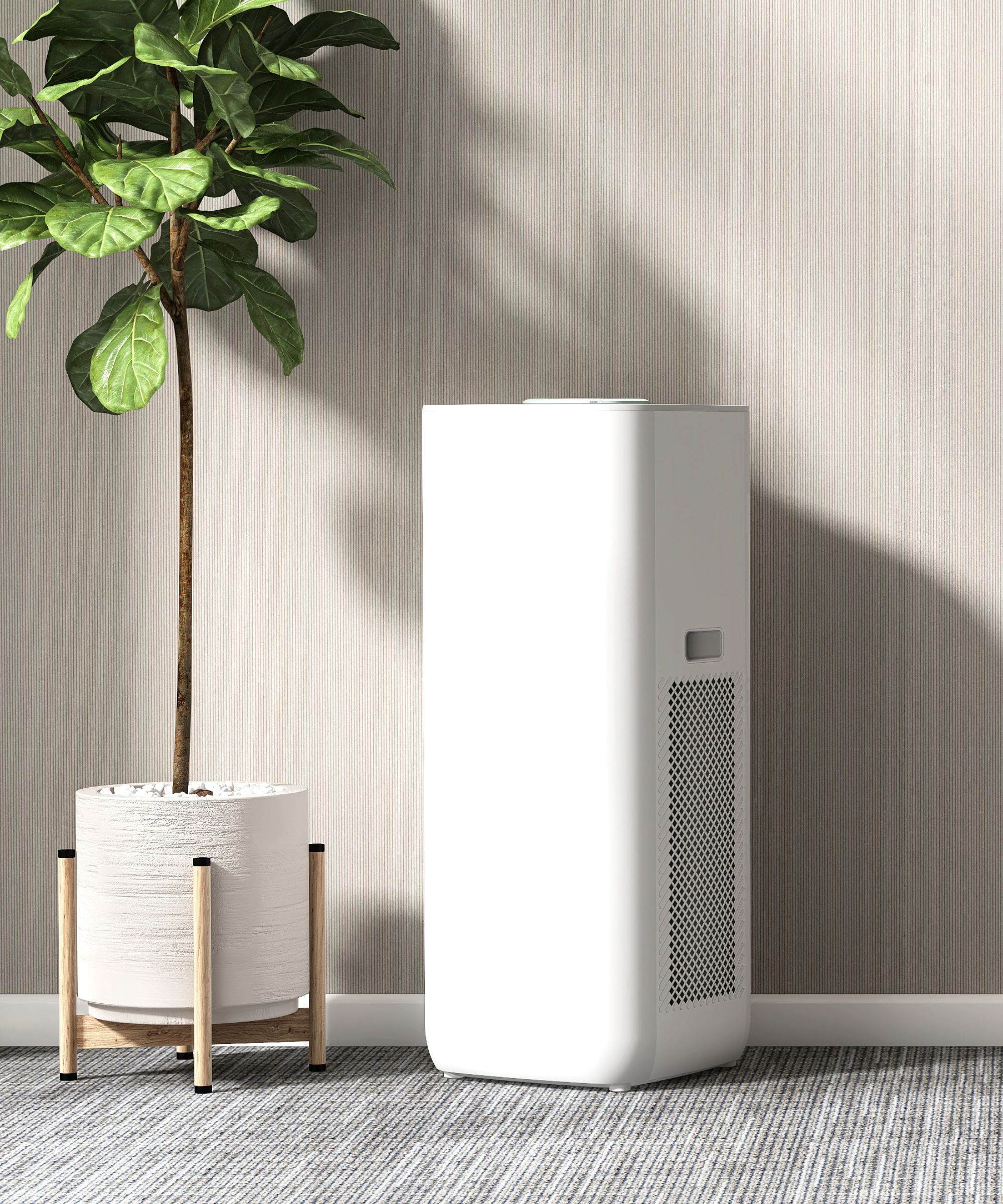
When it's cold in winter, you might be tempted to crank up the heat, ignoring the best temperature for a thermostat in winter. While this might keep you cozy, doing so creates a temperature imbalance between the inside and the outside of your house. When the moist, warm inside air collides with a cold, dry surface, such as a window, it quickly cools and condenses into water.
When you use a dehumidifier in winter, however, you get to turn up the heat without worrying about the water, which is a breeding ground for allergens such as mold and mildew.
But do dehumidifiers help with mold at home? According to Kevin Goude, owner of First Choice Heating & Air, using a dehumidifier 'can alleviate allergy symptoms by creating an environment less hospitable to allergens and reducing the presence of harmful viruses' that thrive in humid conditions.
In his work with residential HVAC systems, Goude has also seen how excessively high humidity can pose a threat to your property, as well as your health.
'Too much moisture in the air can cause wooden and upholstered furniture to warp, and lead to peeling and bubbling of paints and wallpaper, which loses its adhesion in high humidity,' he warms. Using a dehumidifier can help to undo what moisture damage is already done, and prevents further degeneration.
Wondering how to cut energy bills? Goude also identifies the surprising economic benefits of running a dehumidifier through the winter. 'When humidity levels are high, your heating system has to work harder to maintain a comfortable temperature,' he explains. 'This leads to higher energy costs. A dehumidifier helps to maintain consistent humidity, easing the load on your HVAC system,' and helping you to save money at home.
For the best benefits of using your dehumidifier in winter, John Gabrielli, owner of Air Temp Solutions advises keeping your indoor humidity levels between 30 and 50 per cent. 'This helps keep the air quality high and your living space more comfortable,' he says.
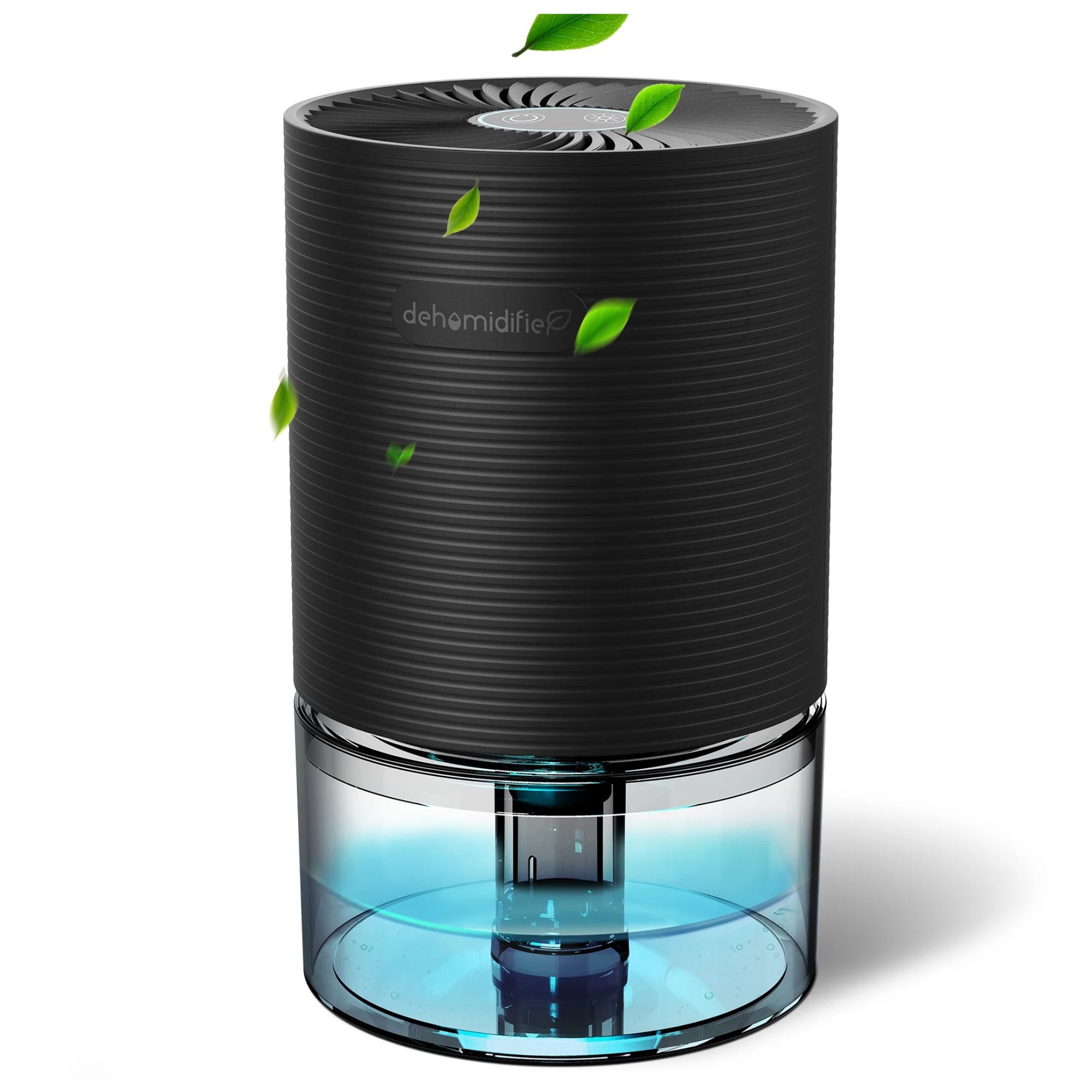
This small and compact dehumidifier is lightweight, portable and ultra-quiet. It also features a handy auto-shut off feature for safety, with a colorful LED light, which can be changed between seven different colors to compliment your decor.
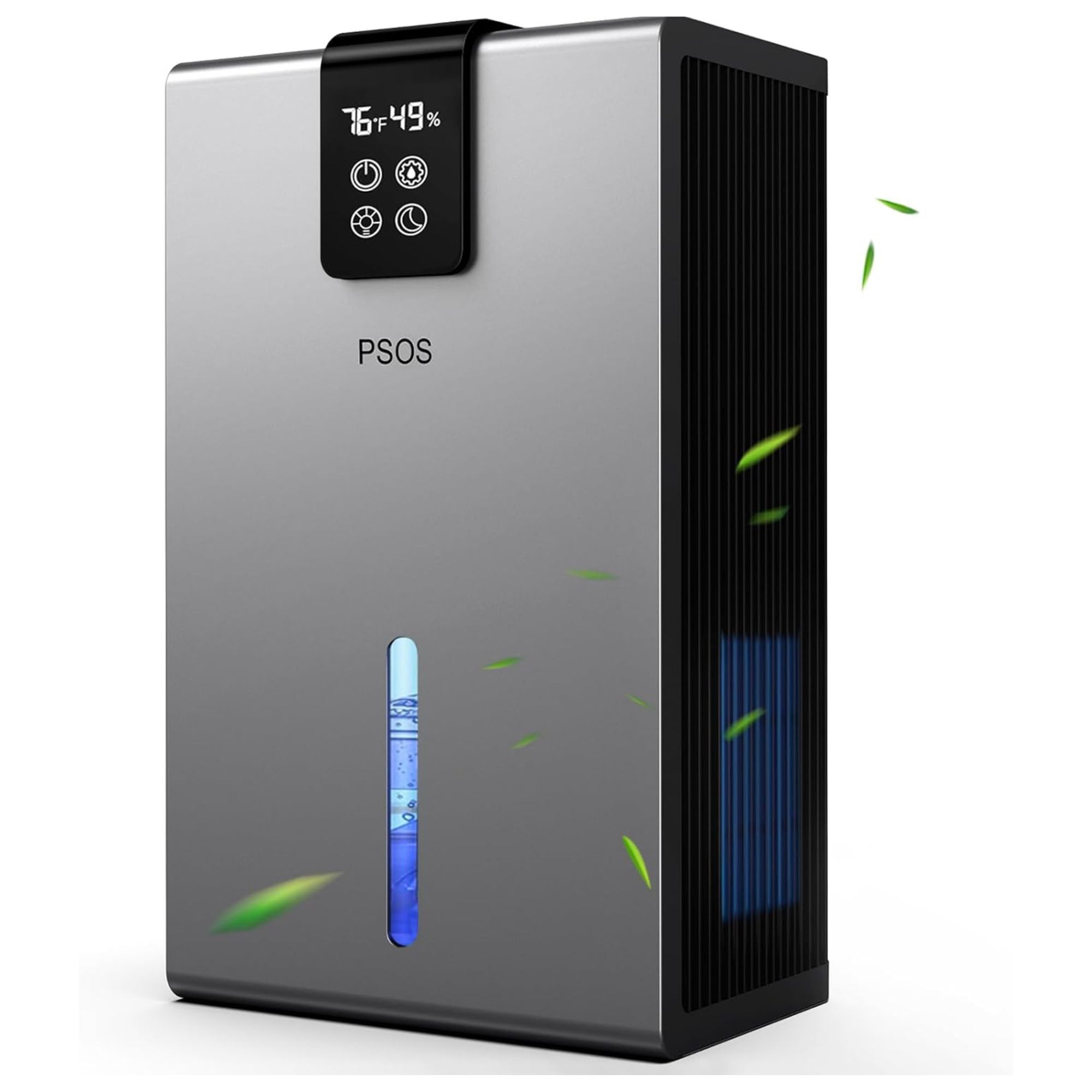
This dehumidifier features adjustable humidity control with a digital display. It also has automatic defrost, quiet operation and sleep mode. It's easy to clean and maintain, too, once you know how often to change a dehumidifier filter.
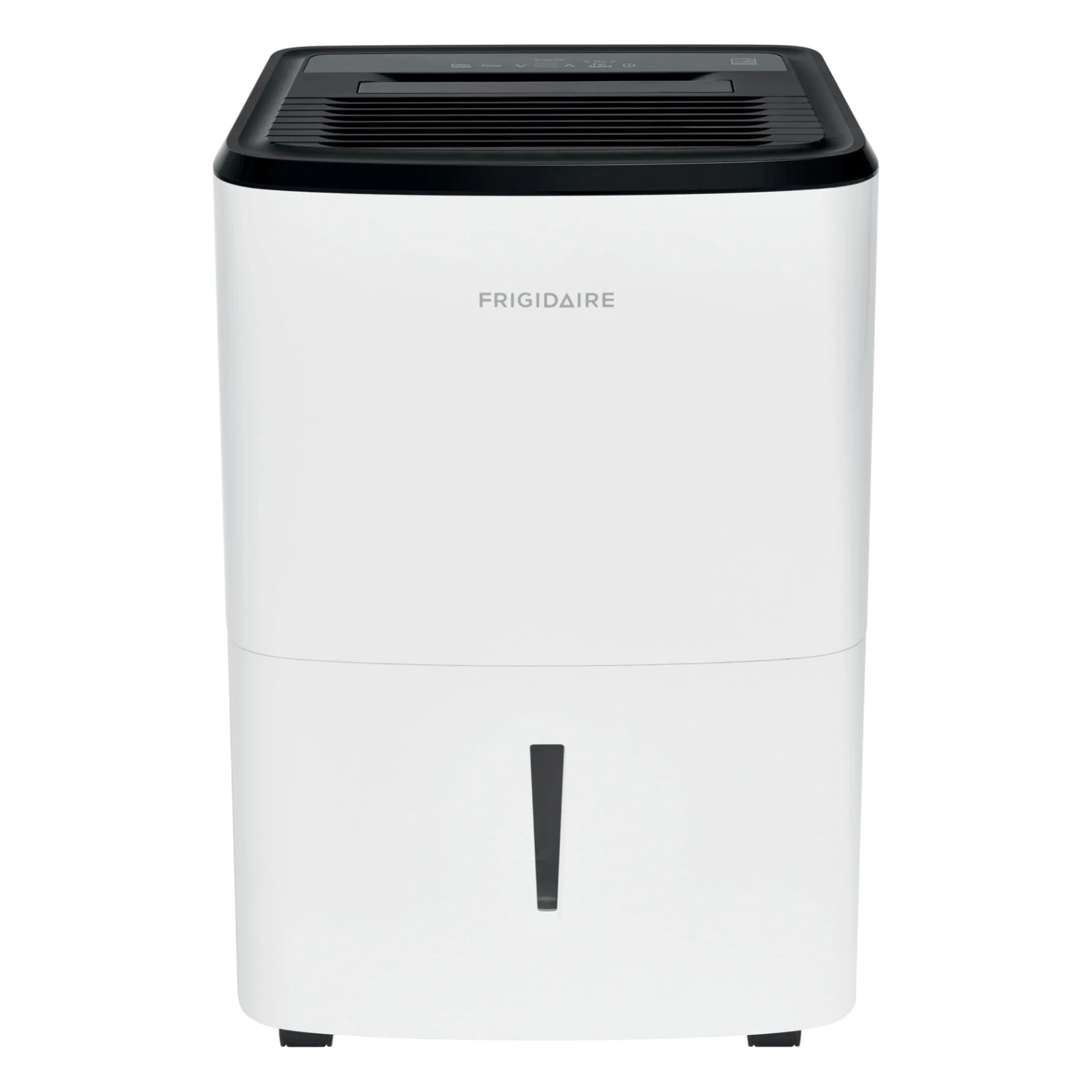
This dehumidifier has a continuous drain feature, meaning you don't need to empty the water tank. It's also easy to clean, with a washable filter, and has custom humidity control with three different fan speeds.
All prices were correct at the time of publication.
What are the drawbacks of using a dehumidifier in the winter?
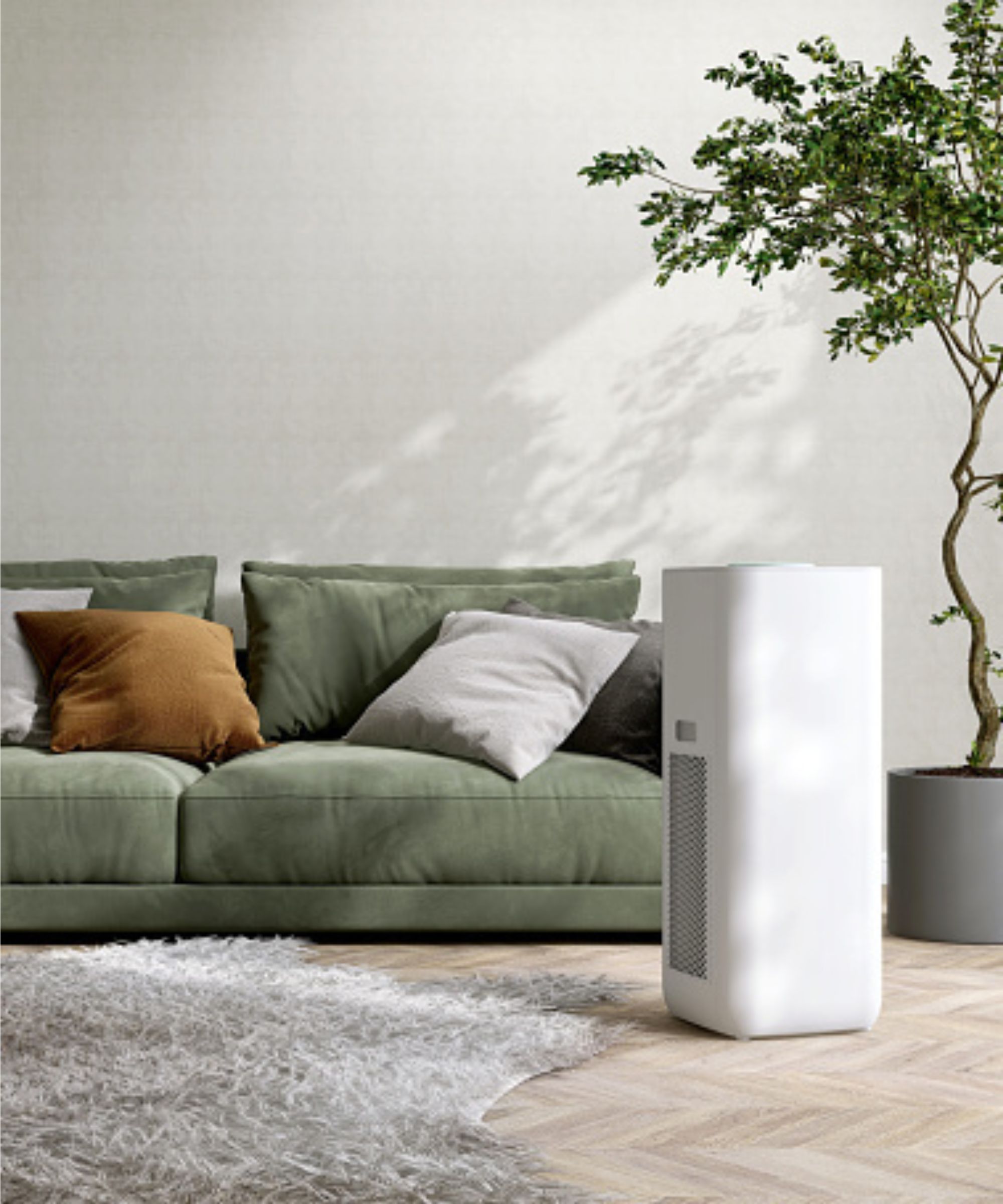
While using a dehumidifier during winter can alleviate allergies and remove potentially damaging excess water from the air, AireServe President Brad Roberson questions whether they are really necessary.
'Dehumidifiers can help with things like reducing condensation on windows and keeping the home drier,' he says. 'But, winter air already tends towards the dry side,' unlike the hot weather of summer, when you'll be looking to reduce your homes humidity and wondering does a dehumidifier make a room cooler.
To determine whether using a dehumidifier during winter is right for you, Roberson encourages considering your regional climate before switching yours on. 'In colder, drier climates, the need for a dehumidifier might decrease during the winter months,' he warns. In fact, running a dehumidifier in these conditions may just dry out your skin, irritate your respiratory passages or just simply not make a difference. 'When it gets really cold outside, a lot of dehumidifiers don't work as efficiently because they're usually made for milder weather,' explains HVAC expert Gabrielli.
Additionally, while too much moisture might lead to structural issues you can't afford to ignore, so too can a lack of moisture. 'Humidity levels that drop too low can also cause damage to the home,' says Roberson. 'For example, hardwood floors can buckle or even crack.'
Therefore, before you use a dehumidifier in the winter, you should consider the microclimate of your home and work out where condensation collects. There's no point running a dehumidifier in an enclosed space without windows, though it might make sense to place one in the corner of the bathroom or kitchen, which are typically more humid environments.
What are the best alternatives to dehumidifiers?
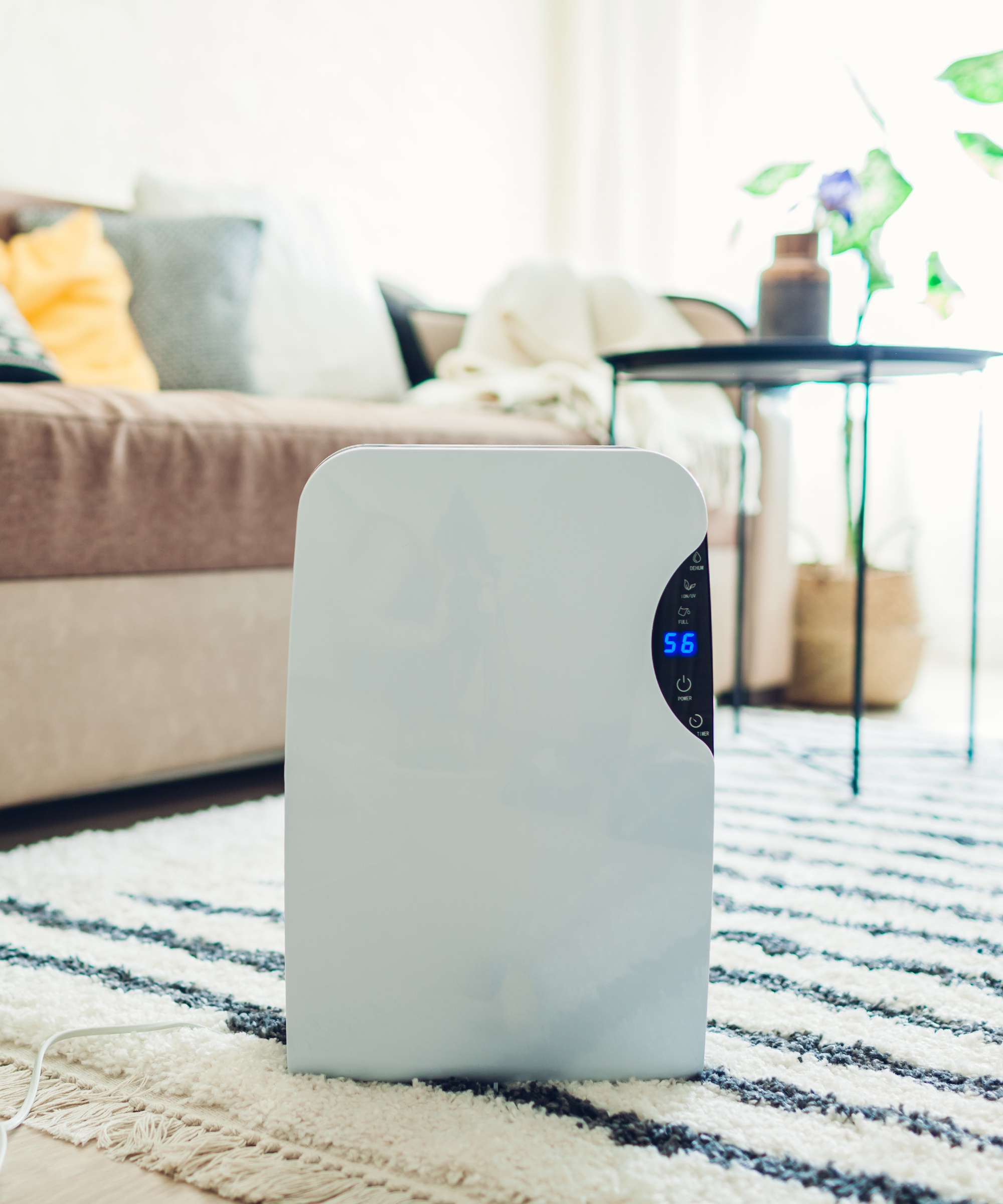
Luckily, if you don't have a dehumidifier, or aren't ready to make the investment, there are a number of DIY dehumidifiers you can make use of to reduce humidity in your home without increasing energy consumption.
'Dehumidifiers require electricity to operate, and if humidity levels in your home are not too high and need just a slight adjustment, you don't need to buy (or use) one,' says Sergey Nikolin, president at Product Air Heating & Cooling LLC. 'Instead, you can benefit from budget-friendly moisture absorbers such as DampRid Fragrance Free Disposable Moisture Absorber with Activated Charcoal available at Amazon, for basements, garages, laundry rooms and storage areas.
'For closets, bathrooms, and wardrobes, use hanging moisture absorbers,' such as the number one bestselling DampRid Fresh Scent Hanging Moisture Absorber available at Amazon. 'Opt for reusable options that renew after you dry them in the microwave or under the sun, and contain baking soda or activated charcoal for absorbing bad odors.'
For warmth in winter, you might get more use out of one of the best types of space heater, than a dehumidifier. These portable appliances, such as the Lasko Oscillating Digital Ceramic Tower Heater for Home available at Amazon, are designed to heat smaller spaces, such as bedrooms and offices. While these won't help condensation, they will keep you cozy in the colder months. You may also consider a heated blanket, such as the bestselling Bedsure Heated Blanket Electric Throw available at Amazon, to get you through the long, cold nights. With six heating settings and ten time-settings, this blanket is customizable, safe, soft and durable.
Perhaps you have a recurrent problem with condensation, where mold and mildew take over your home each winter, leaving you wondering why does my house smell musty? To use a dehumidifier in this scenario would treat the symptoms, but not the cause, of the issue. In this case, it might be worth paying the professionals to inspect your property, and upping your insulation.
Some of the best ways to reduce the humidity levels in your home are also totally free. 'Rather than a dehumidifier, improving ventilation can help,' says Colin Matei, owner and president of Clean Air Heating & Cooling. Does opening windows in winter reduce condensation? 'Briefly opening windows replaces damp air, and running exhaust fans when bathing or cooking vents moisture outside,' adds Matei, 'However, dehumidifiers provide the most comprehensive solution, especially for basements and attics. Prevention is far cheaper than repairs.'
If you're wondering whether a dehumidifier works with windows open, it won't do so effectively, so it's much better to opt for one or the other.
The verdict?
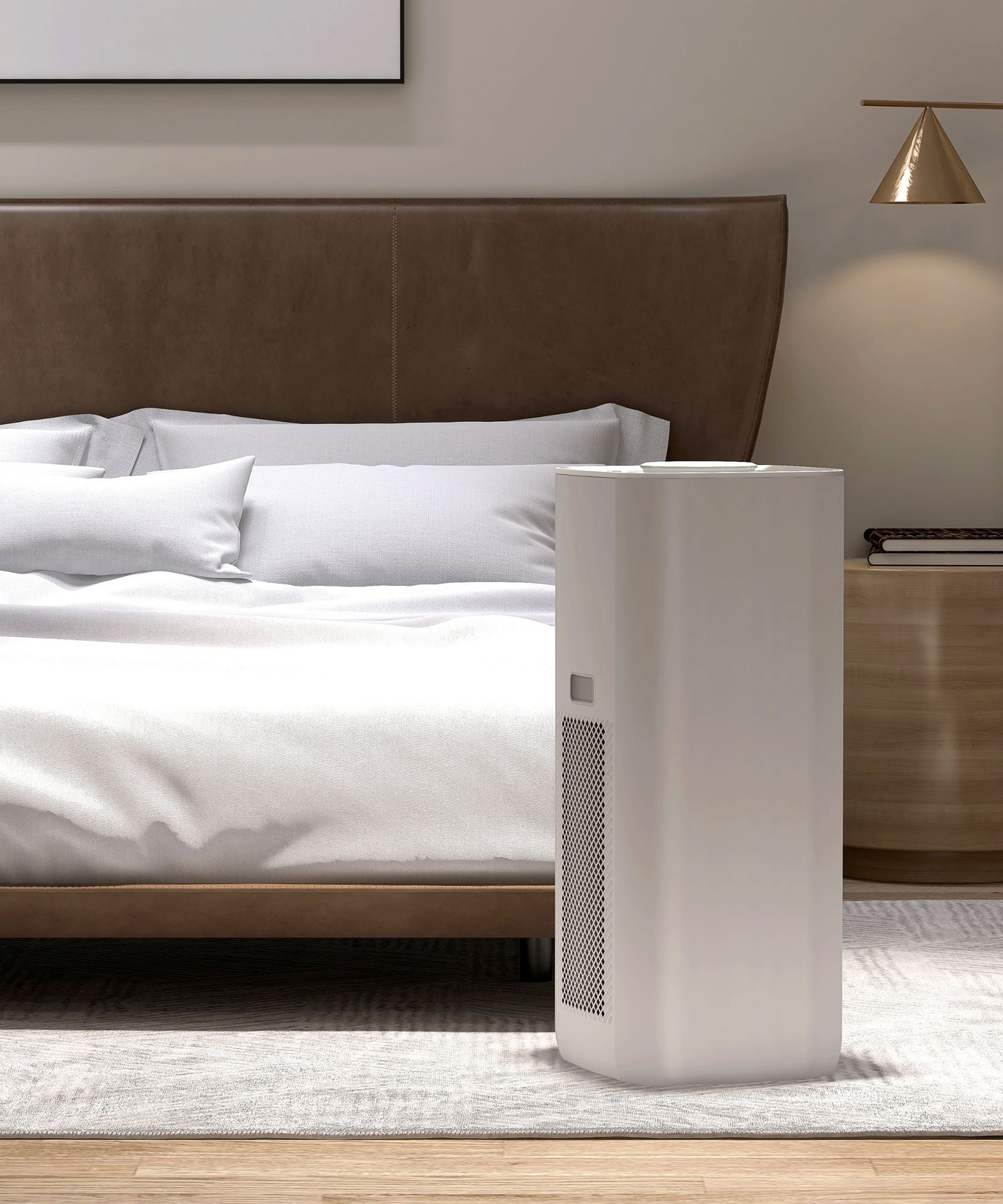
When it comes to whether you need a dehumidifier in winter, HVAC expert Gabrielli recommends a combination technique, to get the best of both worlds. 'Make sure your place is well-ventilated,' he says. 'Use those exhaust fans in your kitchen (and to improve bathroom ventilation) to help control moisture. Keep an eye on your HVAC filters, too, replacing them regularly to manage airflow and humidity.
'And it's a good idea to keep track of the actual humidity levels in your home,' using a hygrometer such as the number one top rated ThermoPro TP50 Digital Hygrometer Indoor Thermometer Room Thermometer and Humidity Gauge with Temperature Monitor available at Amazon. 'This way, you can really see if you need a dehumidifier running during the winter months, or if other methods are enough to keep things dry,' says Gabrielli.
So, running a dehumidifier through the winter should help you to get rid of condensation inside your windows, while stopping the spread of mold and mildew that could aggravate your allergies and damage your property.
But, it's important to find the right place for your dehumidifier, close to the source of humidity, with adequate clearance for good air flow and to position it in a way that doesn't disrupt your decor. You should also consider your regional climate, as well as your home's micro climate, before running one. As Gabrielli notes, if the air outside is cold and dry, you might not need a dehumidifier in the first place.
If you do opt to use one in winter, there are also ways to reuse your dehumidifier water instead of pouring it down the sink, which is a sustainable way to complete household chores like watering plants and cleaning floors.
FAQs
How do I tell if I need a dehumidifier?
In general, try to spot signs of mildew in your home, musty odors, water damage, and an abundance of pests. You might also feel that the air is humid, your laundry takes a long time to dry indoors or there is a lot of condensation on your windows.
These are all indicators that your home could benefit from using a dehumidifier, most likely throughout the summer season, and, in more extreme cases, in winter too.
Next, get clued up on the difference between humidifiers vs dehumidifiers, to learn more about which is right for you.
Sign up to the Homes & Gardens newsletter
Design expertise in your inbox – from inspiring decorating ideas and beautiful celebrity homes to practical gardening advice and shopping round-ups.

Ottilie joined Homes & Gardens last year, after finishing a Master's in Magazine Journalism at City, University of London. With previous contributions in Livingetc and Motorsport Magazine, she produces content for the Solved section on the website, focusing on clever tips and tricks to keep your home beautiful, organized and clean. She also has an undergraduate degree in English Literature and History of Art from the University of Edinburgh, where she developed a love for inspiring interiors and architecture.
- Emilia HitchingSleep Editor
-
 Bethenny Frankel calls this $695 machine the 'Rolls-Royce Cullinan of coffee' – it's a must-have luxury buy for iced-coffee lovers this springtime
Bethenny Frankel calls this $695 machine the 'Rolls-Royce Cullinan of coffee' – it's a must-have luxury buy for iced-coffee lovers this springtimeThe Real Housewife swears by a luxurious machine that makes nitro cold brew, cold brew, and cold espresso at the touch of a button – here's why it's worth it
By Sophie Edwards Published
-
 The long-awaited ALDI $40 raised bed garden planter is finally back, and it is perfect for small gardens and apartments
The long-awaited ALDI $40 raised bed garden planter is finally back, and it is perfect for small gardens and apartmentsThis highly-rated wooden planter sells out every year, so be fast
By Jennifer Ebert Published
-
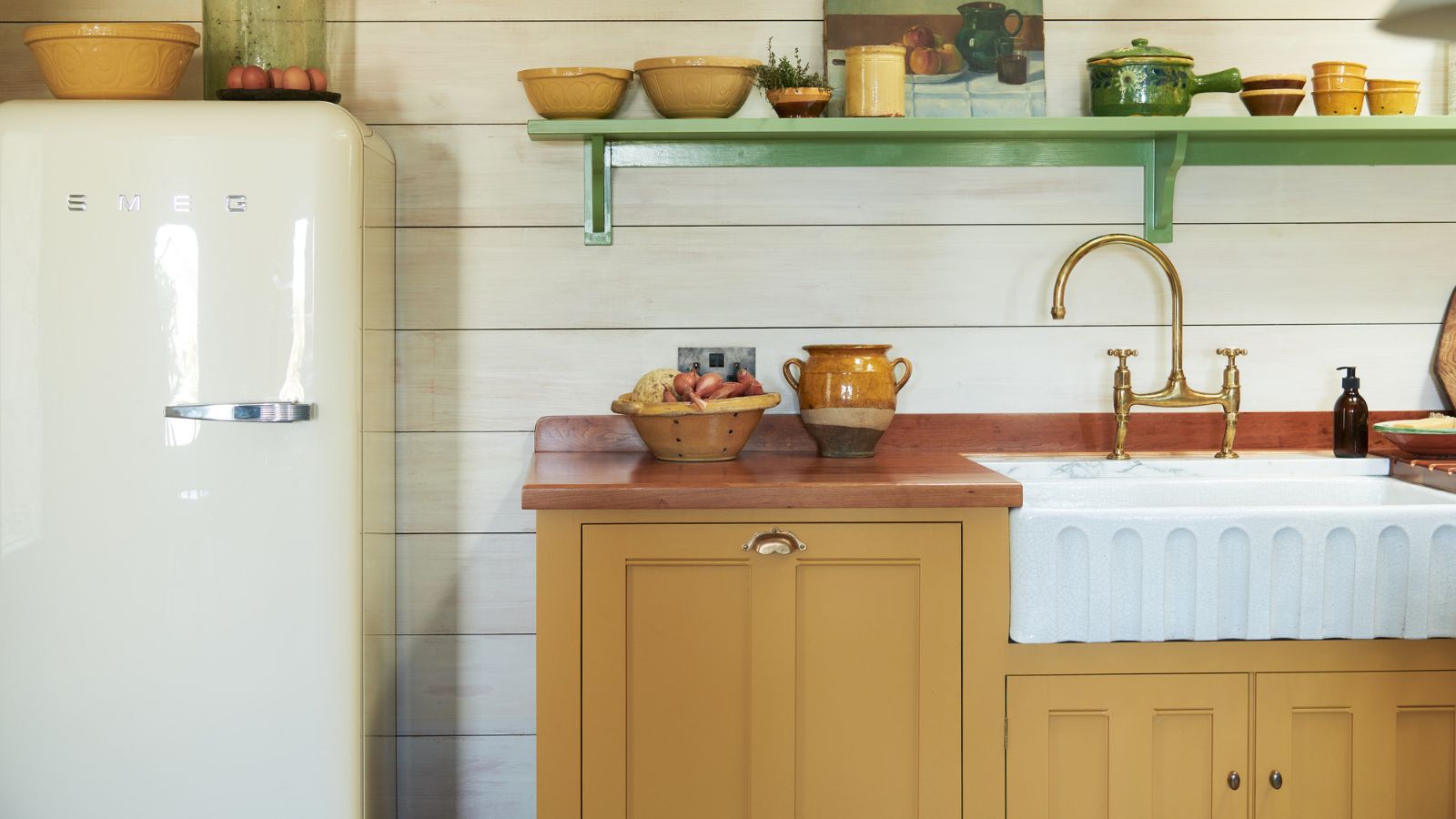 The 5 worst things you can do to your fridge – these will drive up energy costs and result in pricey and regrettable repairs
The 5 worst things you can do to your fridge – these will drive up energy costs and result in pricey and regrettable repairsIt's crucial to swerve these blunders, appliance experts warn
By Ottilie Blackhall Published
-
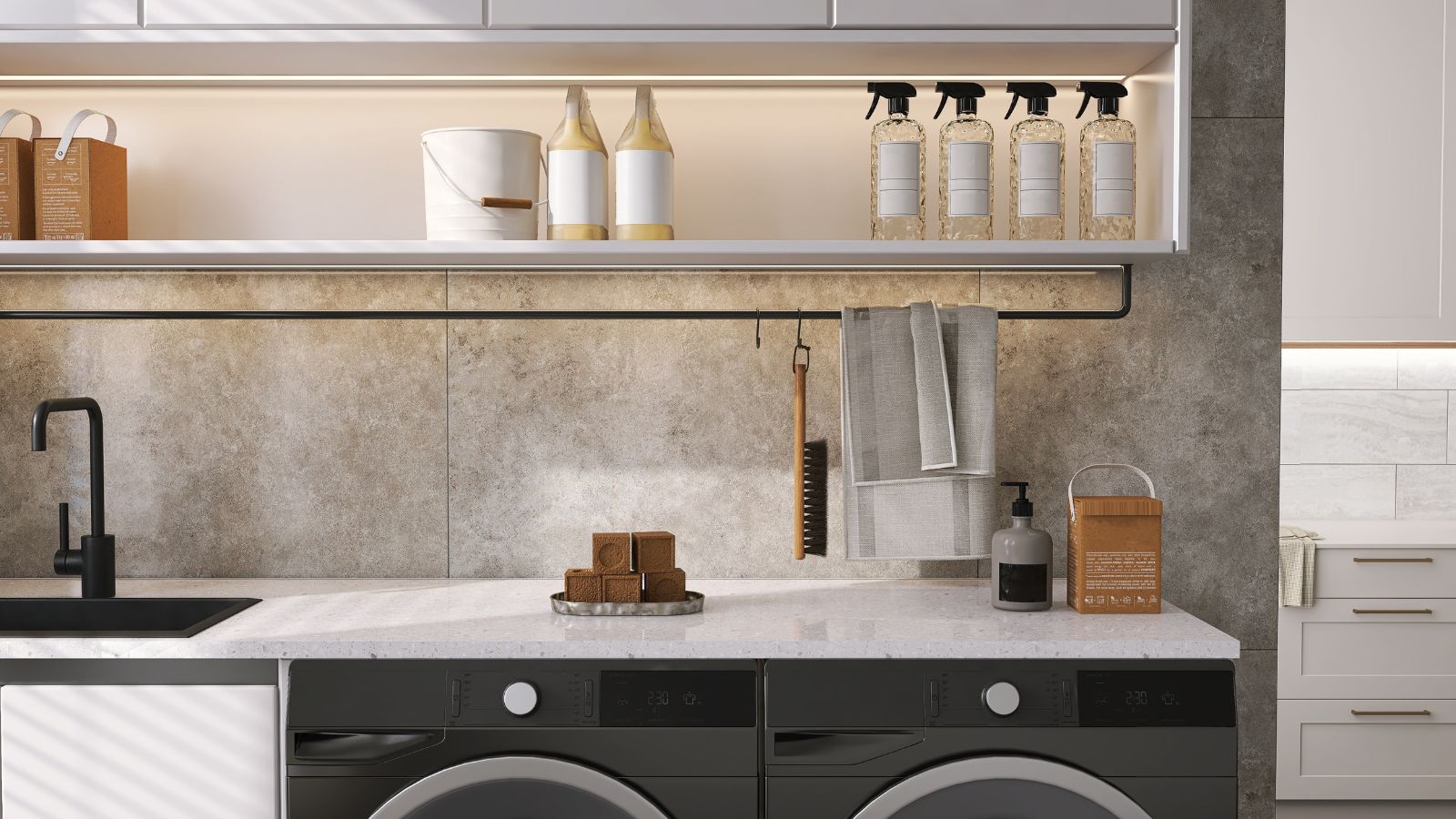 Extend the lifespan of your appliance with 5 simple but crucial washing machine maintenance tips
Extend the lifespan of your appliance with 5 simple but crucial washing machine maintenance tipsFrom cleaning the filters to keeping the door open, experts reveal the washer tips they swear by
By Andy van Terheyden Published
-
 5 vital ways a home battery backup can help with your most urgent needs in a power outage – from heating to flood prevention and calls
5 vital ways a home battery backup can help with your most urgent needs in a power outage – from heating to flood prevention and callsExperts say they're a worthy investment
By Clement Feng Published
-
 I’m an HVAC technician, and this is when I turn on my AC each year – plus 5 checks I always do beforehand
I’m an HVAC technician, and this is when I turn on my AC each year – plus 5 checks I always do beforehandSave yourself an AC hassle by running my checks and turning it on before big heat hits
By Josh Mitchell Published
-
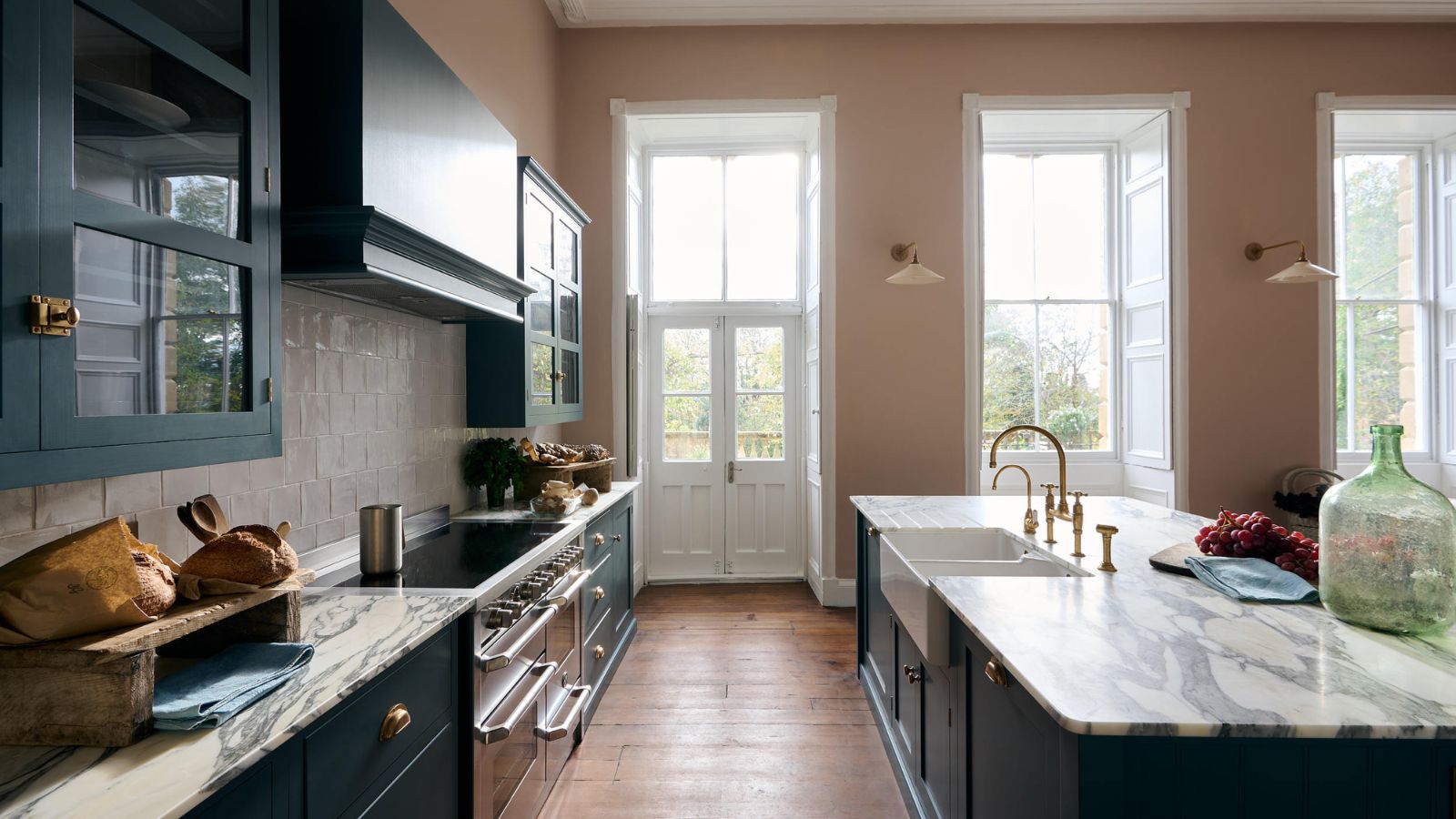 6 things you should never throw in the trash – and what to do for safe disposal instead
6 things you should never throw in the trash – and what to do for safe disposal insteadFrom batteries to space heaters, experts reveal what not to throw
By Andy van Terheyden Published
-
 7 spring home maintenance mistakes to never make – overlooking these now can lead to pest problems and structural damage
7 spring home maintenance mistakes to never make – overlooking these now can lead to pest problems and structural damageHome improvement pros share common mistakes and what to do instead
By Eve Smallman Published
-
 10 common but little-known HOA fines to watch out for – and how to avoid them
10 common but little-known HOA fines to watch out for – and how to avoid themFrom sprinklers to garage doors and external pipes, your HOA contract may leave you open to a fine
By Eve Smallman Published
-
 I’m a homes editor and these are the 4 vital storage items I’m 'adding to cart' this spring – and why you should too
I’m a homes editor and these are the 4 vital storage items I’m 'adding to cart' this spring – and why you should tooI've learned a few hard lessons in recent weeks and these storage solutions will help
By Punteha van Terheyden Published